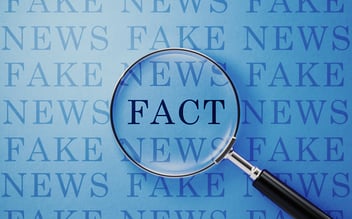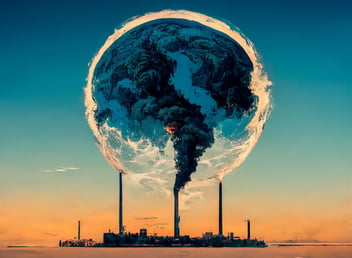The Real Cost of Lies? Weak Policy making and inaction towards Clean Air
Can the need for action towards air pollution control be emphasized any stronger? Despite the severity of this issue, weak policymaking and unmonitored execution have been acting as catalysts for the damage caused by air pollution, particularly in India. Despite the existence of several policies and regulations to control air pollution, the implementation and enforcement have been weak due to various reasons.
Remember the meme with a child smiling and the firefighters trying to rescue the burning house in the background without actually performing their duty? That’s where we are heading with inaction and just creating policies over policies. In no time, air pollution will be smiling back while we struggle to breathe and succumb to the fate of inaction on time.
According to recent data from the Global Burden of Disease (GBD) study, air pollution is the leading cause of premature deaths in India, contributing to approximately 1.67 million deaths annually. The study also revealed that air pollution-related diseases such as chronic obstructive pulmonary disease (COPD), lung cancer, and stroke are responsible for more than half of all deaths in India. These numbers are staggering and highlight the need for urgent action to address air pollution in India amplifying the magnitude of the consequences
One of the significant causes of inaction on air pollution in India is weak policymaking. While there are several policies and regulations to control air pollution, the lack of implementation and enforcement has been a significant challenge. The reasons for this are multifaceted, including political interference, weak institutional capacity, lack of public awareness, and insufficient resources.
India has introduced several air pollution control policies and regulations in recent years, some of which have been overambitious in their nature. However, their implementation and enforcement have been weak due to various reasons, leading to shortcomings in achieving the intended objectives.
Some of the policies and their shortcomings are:
- National Clean Air Programme (NCAP)
The NCAP was launched in 2019, with a target of reducing particulate matter (PM) concentrations by 20-30% by 2024. While the program is a step in the right direction, its targets are overambitious and unrealistic, given the magnitude of the air pollution problem in India. The program also lacks a clear roadmap for implementation, and its success depends on the cooperation of various stakeholders, including state governments, which may not be forthcoming.
- Bharat Stage VI (BS VI) Emission Norms
BS VI norms are the latest emission standards for vehicles in India. While the implementation of BS VI norms is a positive step towards reducing air pollution from vehicles, the policy has its shortcomings. One of the major shortcomings is the lack of proper enforcement, leading to many non-compliant vehicles on the roads.
- Graded Response Action Plan (GRAP)
GRAP is a pollution control plan that outlines measures to be taken at different levels of air pollution severity. While GRAP is a well-designed policy, its implementation has been weak due to the lack of political will and institutional capacity. The plan is not legally binding, and compliance is voluntary, leading to a lack of enforcement.
Political Interference and Lack of Public Awareness:
Air pollution is like a silent thief that steals the breaths of its people. Whereas, the policymakers are like the guards of the city, responsible for protecting its people from harm. However, they are often preoccupied with economic growth and political interests, leaving the people vulnerable to the thief. The thief represents the harmful pollutants that are released into the air, and its silent nature highlights the lack of public awareness on the issue. The people represent the victims of air pollution, who are unaware of the dangers that lurk in the air they breathe. As a result, the thief continues to steal the breaths of the people, and the guards fail in their duty to protect them.
Conclusion:
It is disheartening to see India fall short on most fronts when it comes to taking action against air pollution. The lack of political will is crippling, leading to a scarcity of financial and institutional resources, and this, in turn, not only impacts public health but also causes irreparable damage to the environment. As human beings, we have already gambled with more than we can afford to lose. The problem of air pollution is so severe that we feel its effects on our health every day, without needing to wait for breaking news and the alarmingly red colour of the air quality index to realize the gravity of the situation. We cannot bear the cost of more lies in the name of fighting against air pollution control, given the current scenario.
References:
https://www.orfonline.org/research/indias-air-pollution-challenge/
https://www.thethirdpole.net/en/pollution/india-air-pollution-policy/ amp&gclid=CjwKCAiAmJGgBhAZEiwA1JZolotJXmCCaOmwGbZ4UvhwHa9Fop_MjiARW3mJFh_y9G2psfmHhaP-TxoCZlEQAvD_BwE
https://www.orfonline.org/research/finding-solutions-to-air-pollution-in-india-the-role-of-policy-finance-and-communities-74311/
https://www.iea.org/reports/air-quality-and-climate-policy-integration-in-india
https://www.sciencedirect.com/science/article/pii/S2405844020312317

.svg)
.webp?width=1080&height=1080&name=Free%20Case%20Study%20Steel%20Plant%20(1).webp)







Post Comments